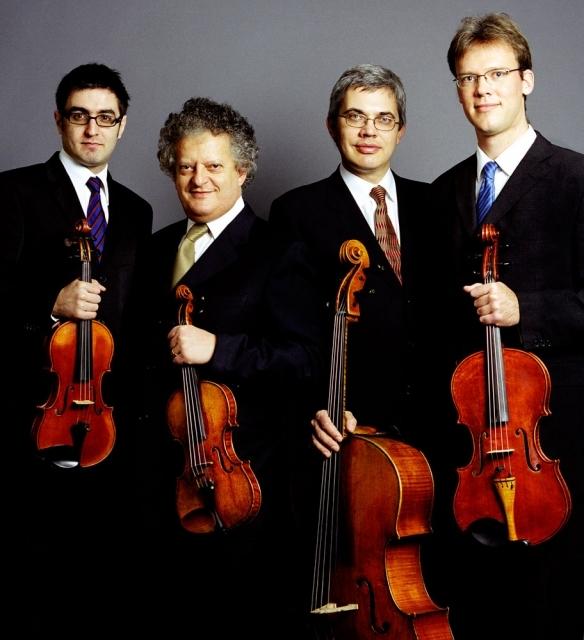To launch a music festival with the Arditti Quartet, as Bath has just almost done (a pair of dance events preceded them), is a bold enough gesture, if no bolder than for the Arditti to open up their Assembly Rooms concert with Beethoven’s Grosse Fuge – a finisher if ever there was one. But for this particular group, late Beethoven might well seem like a kind of starting point. Beethoven was the first to write unplayable music for string quartet; and the Arditti have always specialised in the unplayable.
That later generation might be typified, at least creatively, by Harrison Birtwistle, whose Tree of Strings (enigmatically named after a poem by Sorley Maclean) is the best imaginable response to the discursive continuities of Beethoven’s last quartets. Like them, this is an unbroken 30 minutes of quartet music that moves through multiple phases, working and reworking ideas that seem to evolve from very simple beginnings; and like them, to my ears, it’s a purely musical concept, despite its supposed origins in the spiritual atmosphere of Raasay, where Birtwistle lived for a time in the late Seventies. You can hear, if you must, tiny echoes of Highland music, shadows of seabirds and so forth, and the work ends with a mild joke at Raasay’s expense, as the players leave the platform one by one in memory of a time when Presbyterian elders forbade the playing of music on the island.
But the essence of this marvellous writing lies in the technical mastery that Birtwistle has perfected over many years and which has its roots in a much richer and more complex music than pibroch. It’s a music of intricate texture, lyrical bursts, and intermittent silence. What sound like fragments of cantus firmus – like the plainsong lines that weave through the middle of Palestrina – bind together the four parts as they dialogue and interact. There’s even imitation, as in Palestrina, though no Beethovenian fugue. And yet Birtwistle accepts the classical concept of the quartet as a conversation of equal voices, even while throwing an occasional strong spotlight on one or the other, as at the very end, where the cellist is left intoning his cantus as the others abandon him one at a time.
Neither of the remaining two works in the programme engaged the ear and mind to the same extent, for all the Arditti’s consistent brilliance. They nevertheless supported the idea that the most anti-traditional composers will revert to four strings when they want to think about musical process rather than non-musical association. It’s true that Schnittke’s Second Quartet, a memorial to a friend killed in a road accident, is rather thick with Russian Orthodox znamenny chant, not entirely to its advantage - the Arditti might instead have played his Third, which among other things quotes the Grosse Fuge. Pascal Dusapin’s reflective Fifth Quartet, on the other hand, has a clarity of melody and harmony that will have come as an agreeable surprise to anyone in this gratifyingly large audience who may have come across his tangled and inert early works for the medium. Perhaps ripeness isn’t always all. But it’s usually enough.













Add comment